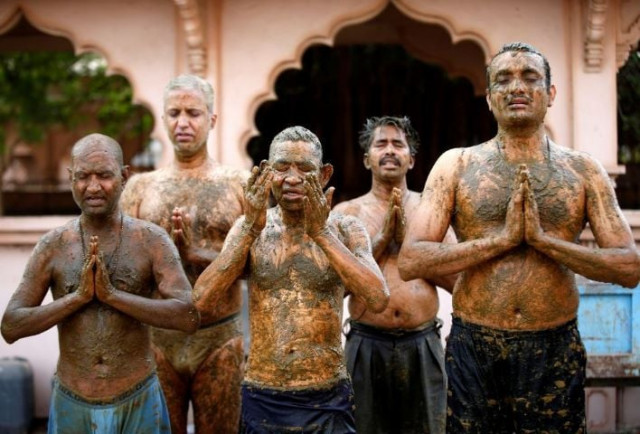Indian court orders release of activist jailed for cow dung comment
The cure for corona is not cow dung and cow urine, the cure is science and common sense, he commented on Facebook

India's top court Monday ordered the release of an activist arrested on sedition charges two months ago for a Facebook post that said cow dung did not cure coronavirus.
Erendro Leichombam, 40, made the comments in May after the death of a Manipur state politician from Prime Minister Narendra Modi's ruling Hindu-nationalist Bharatiya Janata Party.
Cows are sacred in Hinduism and there have been several instances of BJP politicians backing the use of cow urine and dung to prevent and cure Covid-19 and other ailments.
"The cure for corona is not cow dung and cow urine. The cure is science and common sense," Leichombam wrote on Facebook.
He was arrested shortly afterwards, together with a local journalist, on charges of "outraging religious sentiments" of family members and BJP workers, following a complaint by another local BJP politician.
He was later charged with sedition under the contentious National Security Act (NSA), under which the accused can be held in prison for a year.
On Monday the Supreme Court ordered Leichombam's release, saying his continued detention violated his rights. The local journalist arrested at the same time, Kishorechandra Wangkhem, however remains behind bars.
Under Modi, several thousand people have been arrested under sedition and anti-terrorism legislation, including journalists, rights activists and others.
This month 84-year-old priest and tribal rights activist Stan Swamy, who had been charged with terrorism offences, died after nine months in custody, prompting international outrage including from the UN High Commissioner for Human Rights.
Last week, the court rued the "misuse" of India's colonial-era sedition law and asked the Modi government why it should not be scrapped. The government did not respond.



















COMMENTS
Comments are moderated and generally will be posted if they are on-topic and not abusive.
For more information, please see our Comments FAQ